there's probably too much Homeland on here, but i don't care
Don't wanna be here? Send us removal request.
Note
I am a student who writes and loves to do so. And now, I am facing The Decision of my life, i.e., Which College? What Course? And I wanted to know if it is worth it. To be a writer, full time. I am and will always be a writer, despite my choices, but I want to know if being a writer full time will be pay me enough to live. And I have heard a lot of people who tell me to put my brain into the Science Department rather than spin lies. As a creative professional, what would you advice?
Dear writer-birds-sanctuary,
It’s funny — funny strange, maybe, rather than funny ha ha — to think that I am technically a full time writer, because I am also not. The most accurate description is actually: the majority of my income is from my writing.
I don’t think that I am a full-time writer, though.
I don’t even really know what I would do if that was true, if most of my time was spent actively writing or story-making. I would run out of things to write about. I would write the same story and people over and over again with different names and different settings. I would create unhealthy goals for myself of ever bigger sales or more awards in writing, because if writing was my sole and most important path, I would do nothing but try to improve myself in that department year after year.
But I don’t think I am a full-time writer, although I am a professional writer. I have a music studio and an art studio, and I consider myself equally a musician and artist. I am mad about cars, and spend a decent amount of time in motorsports or just fucking around in mine or other people’s. I’m raising two strange children. I live on a farm. I have taken up occasional blacksmithing.
That is what I am, full-time.
And then I write about it, and am paid for it. This doesn’t mean that this writing doesn’t occupy quite a bit of my time on the pie chart of my weeks. But if you were to take one of these things away: the music, the art, the writing — well, if I was only a writer, there wouldn’t be anything to me. If it was some sort of faustian bargain, I’d give up the writing and find something else to do for money. Writing’s a byproduct, a synthesis of the rest of my life. My uncanny family and my close friends lead me to write the Raven Cycle. My love of cars leads me to write for Jalopnik and Road & Track. My memories of what it was like to be a struggling, ambitious teen lead me to write this answer.





I guess what I’m saying is don’t put the horse behind the carriage. Follow your passion, and then write about the emotional truth of that. If you love biology, study the hell out of that, then infuse your novels with it. Don’t worry that you’ll suffer by not majoring in English (I majored in History and took zero writing classes)(I also wrote zero words of fiction while in college, but still had a writing career by 26). There are other ways to learn to write novels and my professional writing friends are evenly split in having a writing degree versus not. If you don’t love biology, only like it … maybe major in it anyway.
Because you will be poor.
A very few authors manage to not be poor straight out of the gate, but most have to scrape their way up over five years, ten years. I was one of the scrapers, writing on the side while making my living as a portrait artist. I’m not very good about writing when I am also fretting about money — it makes me slow, and also resentful of whatever it is I’m writing — and so for me, I’d rather put the burden of urgently paying my bills on something that is not my current novel. Nowadays that means that my past novels are paying my mortgage while my current project is paying future bills. But back then, it meant I was happier having another job while I worked out getting published.
And, I mean, biologist sounds like a good job.
This has gotten very long and it’s all saying essentially the same thing: don’t let WRITER be your identity, even if WRITING is your ultimate job. Don’t conflate FOLLOW YOUR DREAMS with IGNORE COMMON SENSE. Don’t believe that somehow putting aside your writing to get a degree in Zebra Husbandry means you have abandoned your true self. Don’t think about a ticking clock, think only about forward movement. Pursue whatever degree will give you that balance of identity, security, and vivid creative material. Only you can answer which degree fills in that blank.
urs,
Stiefvater
P.S. College really is not the Decision of Your Life and it makes me sad that this is the biggest lie we’ve told Millennials. College can be intensely meaningful, or intensely not … it’s like high school. Just a handful of years with ever so many more years of life that come after it, plenty of time to change your stars or erase its value or harm or mediocrity. In the end, it didn’t matter where I went to college. I have friends who were shaped by theirs. Don’t give it more emotional weight than it deserves.
3K notes
·
View notes
Text
10 outline techniques for writers
With this post I listed 10 outline techniques to help writes move their story from a basic idea to a complete set of arcs, plots, sequences and/or scenes. Or to simply expand whatever you have in hands right now.
If you have a vague story idea or a detailed one, this post is for you to both discover and organize. A few technique will work perfectly. A few won’t. Your mission is to find the one that works best for you. That said, I advice you to try out as many techniques as possible.
So, are you ready? Open your notebook, or your digital document, and let’s start.

1. Snowflake method: Start with a one-sentence description of the novel. Then, develop this simple phrase into a paragraph. Your next step is to write a one-page summary based on the paragraph, you can write about characters, motivations, goals, plots, options, whatever you feel like. From this point on, you can either start your book or expand the one-page summary into four pages. And, at last, four pages into a brief description of known sequences of scenes. Your goal is to make the story more and more complex as you add information, much like a forming snowflake.

2. Chapter by chapter: List ten to twenty chapters, give each chapter a tittle and a brief description of what should happen. Then, break each chapter into three to five basic sequences of scenes. Give each sequence a title, a brief description and a short list of possibilities (possibilities of dialogues, scenarios, outcomes, moods, feelings… just play around with possibilities). From this point on, you can either create the scenes of sequences with a one-sentence description for each or jump straight to writing. Your goal is to shift from the big picture to a detail-oriented point of view.
3. Script: This might sound crazy, but, with this technique, you will write the screenplay of your story as if it’s a movie. No strings attached to creative writing, just plain actions and dialogues with basic information. Writing a script will take time, maybe months, but it will also enlighten your project like no other technique. Your goal is to create a cinematic view of your story. How to write a script here.
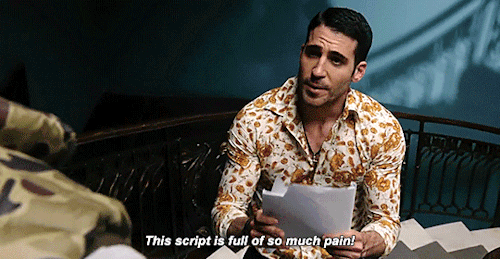
4. Free writing: No rules, no format, no step, just grab a pen or prepare your fingers to write down whatever idea that comes up. Think of possibilities, characters, places, quests, journeys, evolutions, symbolisms, fears, good moments, bad moments, clothing, appearances. Complete five to ten pages. Or even more. The more you write, the more you will unravel. You can even doodle, or paste images. Your mission is to explore freely.
5. Tag: This technique is ideal if you have just a vague idea of the story. Start by listing ten to fifteen tags related to the story. Under each tag, create possible plots. And, under each plot, create possible scenes. Grab a red felt pen and circle plots and scenes that sparkle your interest.
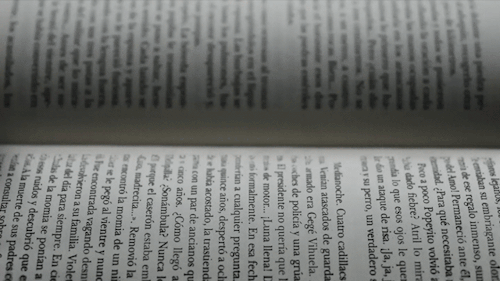
6. Eight-point arc: With this technique you will divide your story into eight stages. They are Stasis, Trigger, Quest, Surprise, Critical Choice, Climax, Reversal and Resolution. The Stasis is the every-day-life of your main character. Trigger is an event that will change the every-day-life of your character (for better or for worse). Quest is a period of your main characters trying to find a new balance, a new every-day-life (because we all love a good routine). Surprise will take your character away from their new found every-day-life. Critical Choice is a point of no return, a dilemma, your character will have to make the hardest decision out of two outcomes, both equally important. Climax is the critical choice put to practice. Reversal is the consequence of the climax, or how the characters evolved. Resolution is the return to a new (or old) every-day-life, a (maybe everlasting) balance.
7. Reverse: Write down a description of how your story ends, what happens to your characters and to those around them. Make it as detailed as possible. Then, move up to the climax, write a short scenario for the highest point of your story. From there, build all the way back to the beginning.
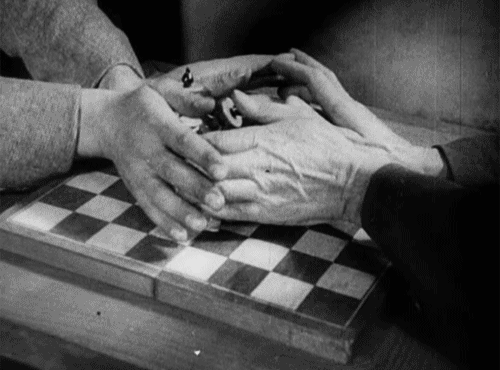
8. Zigzag: Draw a zigzag with as many up and downs as you want. Every up represents your main character moving closer to their goal. Every down represents your main character moving further from their goal. Fill in your zigzag with sequences that will take your character closer and farther from the goal.
9. Listing: The focus of this technique is exploring new ideas when your story feels empty, short or stagnated. You’ll, basically make lists. Make a long list of plot ideas. Make another list of places and settings. Make a list of elements. And a list of possible characters. Maybe a list of book titles. Or a list of interesting scenes. A list of bad things that could happen inside this universe. A list of good things. A list of symbolism. A list of visual inspiration. A list of absurd ideas you’ll probably never use. Then, gather all this material and circle the good items. Try to organize them into a timeline.

10. Character-driven: Create a character. Don’t worry about anything else. Just think of a character, their appearance and style. Give them a name. Give them a basic personality. Give them a backstory. Develop their personality based on the backstory. Now, give this character a story that mirrors their backstory (maybe a way to overcome the past, or to grow, or to revenge, or to restore). Based on your character’s personality, come up with a few scenes to drive their story from beginning to end. Now, do the same thing for the antagonist and secondary characters.
So, when is it time to stop outlining and start writing?
This is your call. Some writers need as many details as they can get, some need just an basic plot to use as a North. Just remember, an outline is not a strict format, you can and you will improvise along the way. The most important is being comfortable with your story, exploring new ideas, expanding old concepts and, maybe, changing your mind many times. There’s no right or wrong, just follow your intuition.
55K notes
·
View notes
Photo

Source for more facts follow NowYouKno
A road has no special qualifiers. It connects point a to point b.
A street connects buildings together, usually in a city, usually east to west, opposite of avenue.
An avenue runs north south. Avenues and streets may be used interchangeably for directions, usually has median
A boulevard is a street with trees down the middle or on both sides
A lane is a narrow street usually lacking a median.
A drive is a private, winding road
A way is a small out of the way road
a court usually ends in a cul de sac or similar little loop
a plaza or square is usually a wide open space, but in modern definitons, one of the above probably fits better for a plaza as a road.
a terrace is a raised flat area around a building. When used for a road it probably better fits one of the above.
uk, a close is similar to a court, a short road serving a few houses, may have cul de sac
run is usually located near a stream or other small body of water
place is similar to a court, or close, usually a short skinny dead end road, with or without cul de sac, sometimes p shaped
bay is a small road where both ends link to the same connecting road
crescent is a windy s like shape, or just a crescent shape, for the record, above definition of bay was also given to me for crescent
a trail is usually in or near a wooded area
mews is an old british way of saying row of stables, more modernly seperate houses surrounding a courtyard
a highway is a major public road, usually connecting multiple cities
a motorway is similar to a highway, with the term more common in New Zealand, the UK, and Austrailia, no stopping, no pedestrian or animal traffic allowed
an interstate is a highway system connecting usually connecting multiple states, although some exist with no connections
a turnpike is part of a highway, and usully has a toll, often located close to a city or commercial are
a freeway is part of a highway with 2 or more lanes on each side, no tolls, sometimes termedexpressway, no intersections or cross streets.
a parkway is a major public road, usually decorated, sometimes part of a highway, has traffic lights.
a causeway combines roads and bridges, usually to cross a body of water
circuit and speedway are used interchangeably, usually refers to a racing course, practically probably something above.
as the name implies, garden is usually a well decorated small road, but probably better fits an above
a view is usually on a raised area of land, a hill or something similar.
byway is a minor road, usually a bit out of the way and not following main roads.
a cove is a narrow road, can be sheltered, usually near a larger body of water or mountains
a row is a street with a continuous line of close together houses on one or both sides, usually serving a specific function like a frat
a beltway is a highway surrounding an urban area
quay is a concrete platform running along water
crossing is where two roads meet
alley a narrow path or road between buildings, sometimes connects streets, not always driveable
point usually dead ends at a hill
pike usually a toll road
esplanade long open, level area, usually a walking path near the ocean
square open area where multiple streets meet, guess how its usually shaped.
landing usually near a dock or port, historically where boats drop goods.
walk historically a walking path or sidewalk, probably became a road later in its history
grove thickly sheltered by trees
copse a small grove
driveway almost always private, short, leading to a single residence or a few related ones
laneway uncommon, usually down a country road, itself a public road leading to multiple private driveways.
trace beaten path
circle usually circles around an area, but sometimes is like a “square”, an open place intersected by multiple roads.
channel usually near a water channel, the water itself connecting two larger bodies of water,
grange historically would have been a farmhouse or collection of houses on a farm, the road probably runs through what used to be a farm
park originally meaning an enclosed space, came to refer to an enclosed area of nature in a city, usually a well decorated road.
mill probably near an old flour mill or other mill.
spur similar to a byway, a smaller road branching off from a major road.
bypass passes around a populated area to divert traffic
roundabout or traffic circle circle around a traffic island with multiple connecting routes, a roundabout is usually smaller, with less room for crossing and passing, and safer
wynd a narrow lane between houses, similar to an alley, more common in UK
drive shortened form of driveway, not a driveway itself, usually in a neighborhood, connects several houses
parade wider than average road historically used as a parade ground.
terrace more common in uk, a row of houses.
chase on land historically used as private hunting grounds.
branch divides a road or area into multiple subdivisions.
190K notes
·
View notes
Text
IT’S NOT ‘PEEKED’ MY INTEREST
OR ‘PEAKED’
BUT PIQUED
‘PIQUED MY INTEREST’
THIS HAS BEEN A CAPSLOCK PSA
689K notes
·
View notes
Text
MAILMAN: I know I can ask you this and not sound crazy but
MAILMAN: is your husband building a playground for your goats?
ME:
MAILMAN:
ME:
MAILMAN:
HUSBAND:

4K notes
·
View notes
Text
On being loveable
(A foreword, I wrote this after watching the season six finale. I was unsure if i wanted to post it until now.)
“I had a kind of epiphany the other day. I’m going to be alone my whole life, aren’t I?” “I always thought that being bipolar meant that I couldn’t be with anybody. That they would leave me soon enough.” “I know what you’re thinking.” “No, you don’t.” “What you put yourself through, it was fucking incredible.” Here are a few quotes that I know off by heart, because they are so dear to me. Three years ago I was completely alone. Ill, far from home and utterly lonely as I scrolled through social media looking for one, just one person who was celebrating the start of 2015 the way I was. I found no one. I found a show. See a few weeks prior to that I clicked on a random video with dripping brambles as a thumbnail. The song sang of heartache, but also of mending, but truly of healing. I was entranced at how these two broken people seemed to have found love in a wreaked world. I was in absolute awe. So on that lonely day I pressed play and didn’t look back. And I learnt, oh I learnt so much. But most of all I finally believed that my mental illness could be something other than a pesky thing to be dealt with by the people around me, but something that they could fall in love with. A superpower, the show called it at times. And damn that felt true. I was finally powerful and loveable, two things I had believed I would never be. See, because I have been proven this over and over again. I have lost count of the number of times I have been abandoned, called weak, called too sensitive. But isn’t that just seeing more? Superpower. I have never been loved romantically. Sometimes people seemed interested, but in the end it was my skin they wanted, not the human inside. As soon as they got to close they ran for the hills. So when I saw that two broken people could love each other I sighed with relief. I believed, oh I believed! Then came the big bang. The guns and the rope. The post traumatic stress that followed in it’s trail. I didn’t feel safe in my own home, I felt watched and scared. Like everything was out to get me. Like anything good in my life would be ripped apart. That’s when I really started to relate to him. For we were struggling together. And there is a sense of strength in that, a sort of camaraderie. Little did I know he was next on my list of good things being taken away from me. Or more so, ripped. And with that all my walls made of power and love came tumbling down around me. For it made no sense and it meant that everything I had believed was a lie. It rendered all my so called discoveries to dirty lies. I felt cheated, I still do. I’ve been feeling physically ill for the past two days because I have been lied to in fiction as well as real life. I have suffered loss in fiction as well as real life. And so I am utterly alone again.
- Daisy
#homeland#peter quinn#noquinnnohomeland#Carrie Mathison#carrie x quinn#quinn x carrie#quinning#quarrie#hope
18 notes
·
View notes
Photo




“You’re a time traveler now. (…) It changes the way you see the universe, forever.”
292 notes
·
View notes
Photo


4K notes
·
View notes
Video
youtube
(via https://www.youtube.com/watch?v=AHoC9jzUvGE)
#lord of shadows#lady midnight#julian x emma#emma x julian#julian blackthorn#emma carstairs#the dark artifices#shadowhunters#TDA#vidding#ya books
2 notes
·
View notes
Text
waiter, bring me the usual please
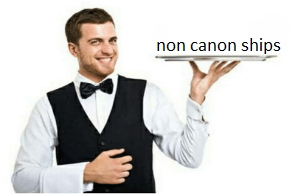
47K notes
·
View notes
Video
youtube
(via https://www.youtube.com/watch?v=DOwc8XJ3o0Q)
"You had a choice to make in that car. You chose her."
#homeland#carrie x quinn#quarrie#quinn x carrie#noquinnnohomeland#no quinn no homeland#the neighbourhood#leaving tonight#peter quinn#carrie mathison
52 notes
·
View notes
Link
Please sign this and leave a comment if you’d like. Only takes a minute! This could be a great fan-led rebuttal to Sunday’s season finale and also help us get some answers from Homeland’s team.
Peter Quinn deserves some fan love. Thank you.
EDIT: You can sign this petition anonymously too!
62 notes
·
View notes
Photo
This hurts so bad
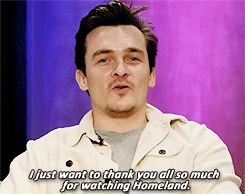
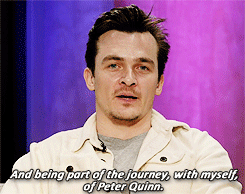
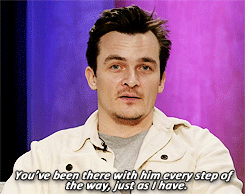
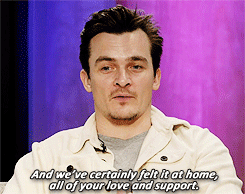
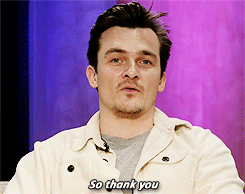
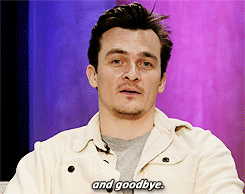
492 notes
·
View notes
Photo
"Either way, I was pretty far down the fucking rabbit hole."








“Hop. Great name.”
112 notes
·
View notes







